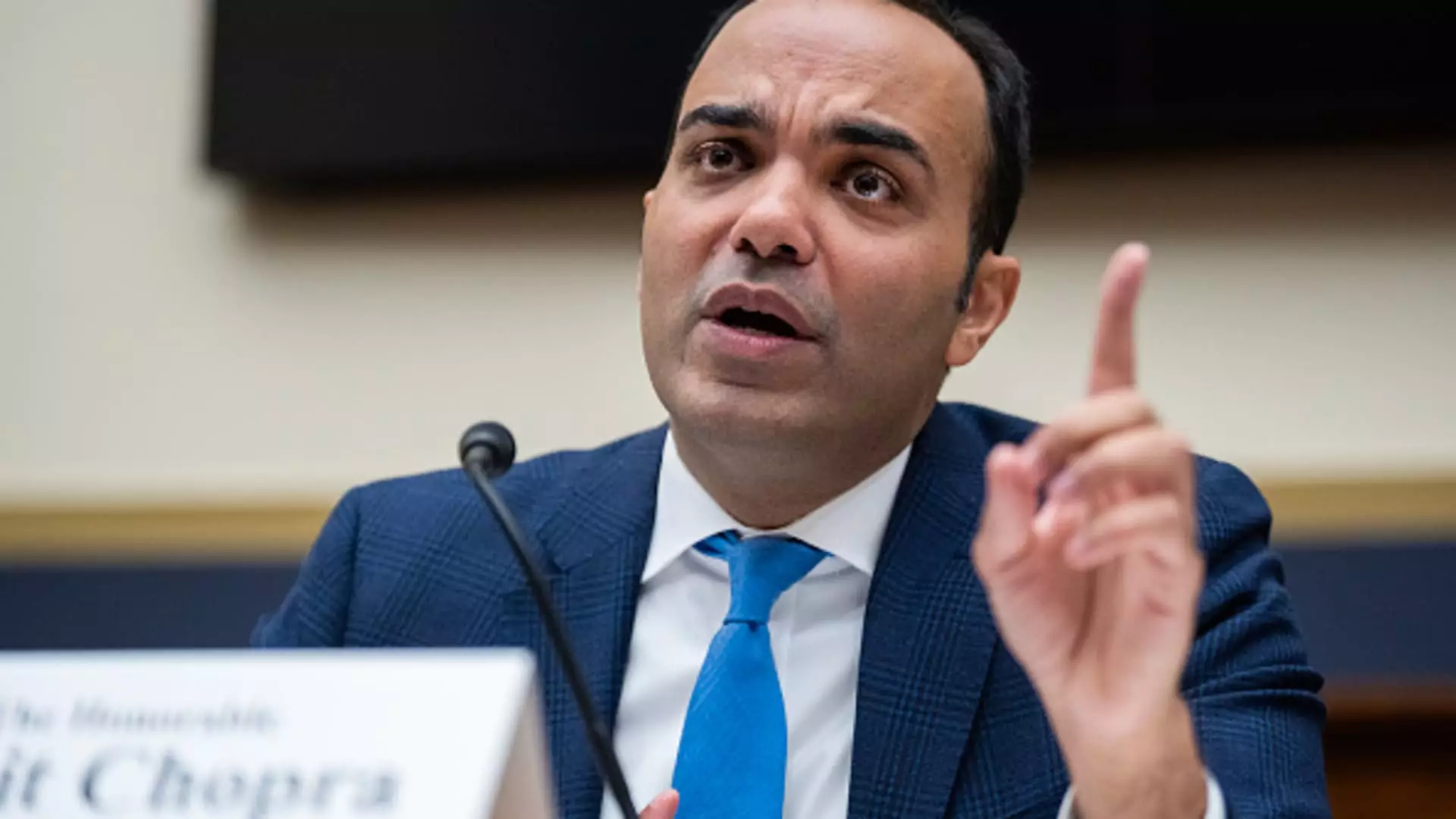In a landmark decision, the Consumer Financial Protection Bureau (CFPB) has put forth a final rule aimed at significantly curtailing the overdraft fees that banks typically impose on their customers. This regulation is poised to reshape the banking landscape for millions of American consumers, potentially yielding annual savings of up to $5 billion. Overdraft fees have long been a contentious issue in the banking realm, often criticized for their high cost and the financial strain they place on consumers. The CFPB’s intervention underscores the urgent need for reform in an area where transparency and ethical practices have been sorely lacking.
The new rule stipulates that financial institutions will have the option to either charge a significantly reduced overdraft fee of $5, a move that marks a dramatic decrease from the current average fee of around $35, or to impose a fee that only covers their administrative costs. Furthermore, banks may opt to charge any fee while disclosing the corresponding interest rates associated with these overdraft loans. This shift is particularly noteworthy, as it elevates consumer awareness, allowing individuals to make more informed financial decisions.
CFPB Director Rohit Chopra has emphasized the importance of this move, stating, “For far too long, the largest banks have exploited a legal loophole that has drained billions of dollars from Americans’ deposit accounts.” This sentiment captures the essence of consumer frustration regarding excessive bank fees, which are often seen as hidden costs masquerading as routine banking practices.
According to CFPB estimates, the banking sector has generated a staggering $280 billion in revenue from overdraft fees since the year 2000. However, the Bank’s revenue from these fees has shown signs of decline as more financial institutions, including JPMorgan Chase and Bank of America, respond to public backlash by either reducing fees or outright eliminating them for certain transactions. The newly proposed regulation applies to banks and credit unions with assets exceeding $10 billion, marking a significant stride towards accountability in larger financial institutions.
This regulatory shift occurs amid a broader movement to tackle what has been classified as “junk fees,” and it coincides with the Biden administration’s resolve to restore consumer protections that have been eroded over the years. Nevertheless, we are witnessing considerable pushback from banking lobbyists who argue that limiting overdraft fees could inadvertently restrict consumer access to necessary financial services, potentially pushing them toward predatory lending alternatives like payday loans.
Despite the optimistic outlook presented by the CFPB, the journey ahead is fraught with challenges. The financial sector has historically demonstrated remarkable resilience and influence when it comes to regulations that threaten their revenue streams. The banking industry is already mobilizing to challenge the overdraft fee rule, demonstrating a clear intent to fight for the status quo. The Consumer Bankers Association has publicly stated that it is “exploring all options” to contest the regulation, indicating the likelihood of significant legal and lobbying efforts.
Additionally, the ultimate future of the new overdraft rule remains uncertain due to the political landscape shifting post-election. With Donald Trump potentially appointing a new CFPB head who may not support the existing administration’s consumer-friendly regulations, the fate of these new guidelines hangs in the balance. The opposition may cultivate an environment where reforms like the overdraft rule fail to translate into practical policy changes.
The CFPB’s initiative to regulate overdraft fees stands as a crucial element in advocating for consumer rights and financial equity. As the regulation is set to take effect on October 1, 2025, consumers must remain vigilant and engaged in their financial dealings. The proposed changes offer a glimpse of hope for a fairer banking environment. However, it is vital for consumers, advocacy groups, and lawmakers to work collectively to ensure that these reforms are not only enacted but also sustained against potential pushbacks from powerful banking lobbies. The financial industry is at a crossroads, and the path forward will ultimately depend on the balance between consumer protection and industry interests.



Leave a Reply